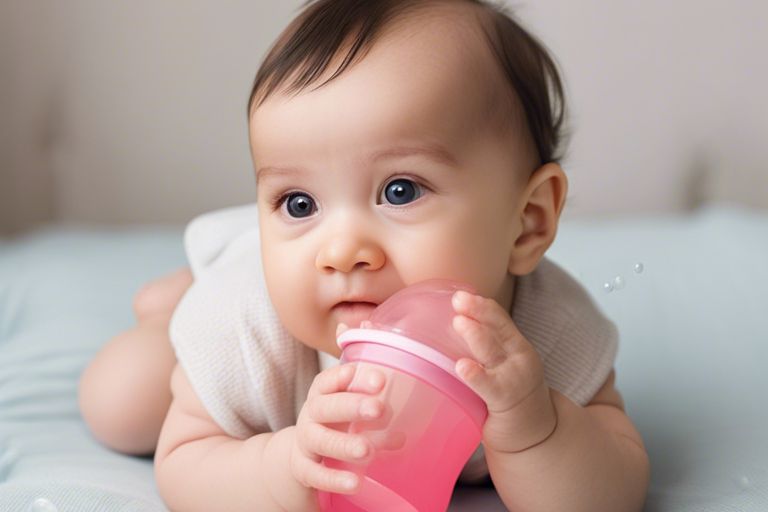tips, tricks and guides for parenthood
Most parents understand the importance of keeping their babies well-hydrated, but knowing the right amount and frequency of fluid intake can be a bit tricky. It's crucial to remember that infants have higher water requirements per kilogram of body weight compared to adults, making proper hydration crucial for their growth and development. Here's what parents should know about hydration needs in infants to ensure they stay healthy and happy.

One of the most common questions parents have is how much water their babies need. It is important to remember that for the first six months of life, babies do not need water as they get all the necessary hydration from breastmilk or formula. After six months, when introducing solids, you can offer a small amount of water in a sippy cup or bottle with meals.
On the topic of hydration, it is crucial for parents to be able to recognise the signs of dehydration in infants. Dehydration can be dangerous for babies and requires immediate attention. Some common signs to look out for include dry mouth, fewer wet diapers, no tears when crying, sunken soft spot on the head, and fussiness. If you suspect your baby is dehydrated, seek medical help promptly.
Assuming you're a parent wondering how to keep your infant properly hydrated, here are some tips to help you out:
After considering these tips, remember to check for signs of Dehydration: Giving Liquids at Home to ensure your baby's well-being.
To ensure your baby stays hydrated, the best fluids to offer are breast milk, formula, or water. These provide the necessary hydration and nutrients for your little one's healthy development.
To start your baby on the path to good hydration habits, encourage frequent feedings and offer fluids regularly. By establishing these habits early on, you help set the foundation for a healthy relationship with liquids as your baby grows.
Special attention should be paid to the hydration needs of sick infants. Dehydration can be dangerous for little ones, especially when they are unwell. It is important to offer small amounts of fluid frequently to prevent dehydration from occurring. If you are concerned about your baby's hydration levels, always seek advice from a healthcare professional.
The summer months can bring challenges when it comes to keeping your baby hydrated in hot weather. Dehydration is a real risk during heatwaves, so it's vital to ensure your little one is drinking plenty of fluids. Breast milk or formula should be offered more frequently, and you can also introduce cooled boiled water if your baby is over six months old.
It's also important to dress your baby appropriately for the weather, keep them cool, and avoid direct sunlight during peak hours. If you notice any signs of dehydration such as dry lips, fewer wet nappies, or irritability, seek medical advice immediately.
As a reminder, understanding the hydration needs of infants is crucial for parents to ensure their little ones stay healthy and happy. By providing breastmilk or formula, offering water in appropriate amounts, and being mindful of signs of dehydration, parents can effectively meet their baby's hydration requirements. Note, consulting healthcare professionals for personalised advice is always recommended to address any concerns and ensure optimal hydration for your precious bundle of joy.
A: Infants have higher hydration needs compared to adults due to their smaller bodies and higher water turnover. It is important to ensure they are adequately hydrated to support growth and development.
A: Parents can monitor their infant's hydration status by checking for signs such as wet nappies, tears when crying, moist mouth, and normal skin elasticity. Consulting a healthcare provider for guidance is recommended.
A: Breast milk or formula milk are the best fluids for keeping infants hydrated. Water is not recommended for infants under 6 months of age as it can affect their electrolyte balance.
A: Parents should offer fluids to their infant whenever they show signs of hunger or thirst. For breastfed infants, feeding on demand is recommended. Formula-fed infants can be offered formula milk every 2-3 hours.
A: Yes, factors such as hot weather, illness, fever, or increased physical activity can increase an infant's hydration needs. It is important for parents to ensure their infant gets enough fluids during these times.